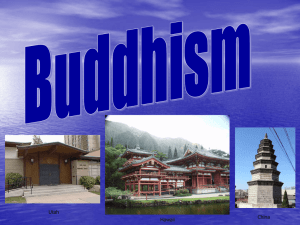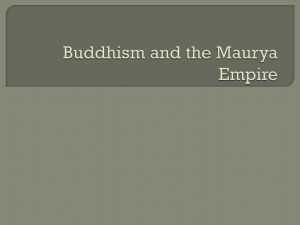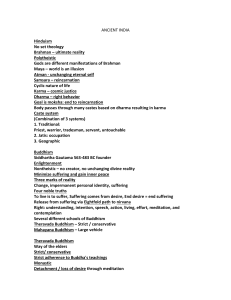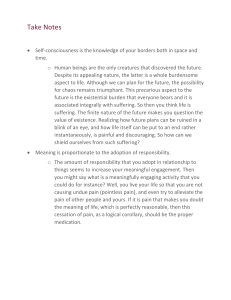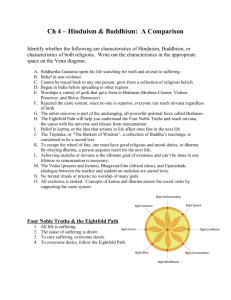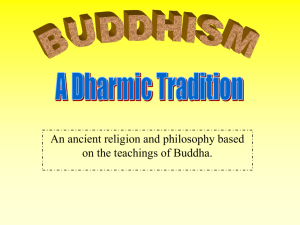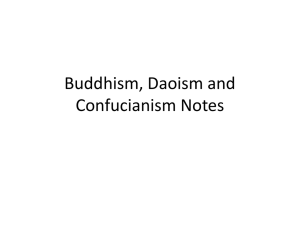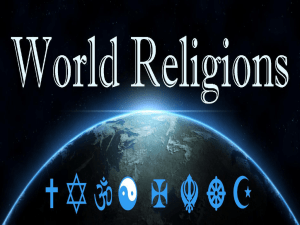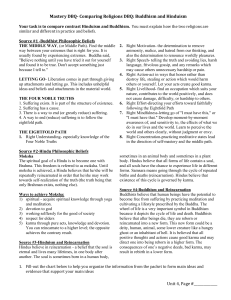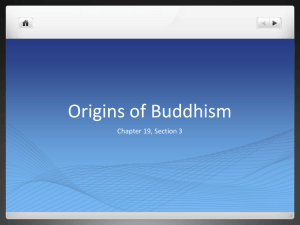Ancient India Vocabulary
advertisement
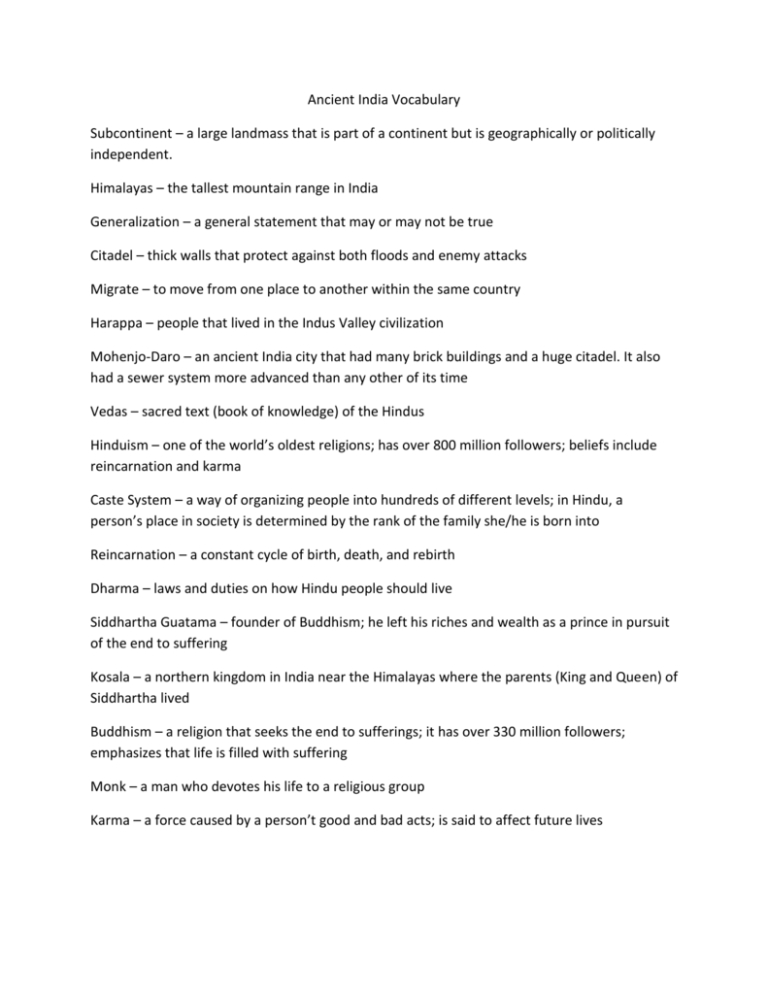
Ancient India Vocabulary Subcontinent – a large landmass that is part of a continent but is geographically or politically independent. Himalayas – the tallest mountain range in India Generalization – a general statement that may or may not be true Citadel – thick walls that protect against both floods and enemy attacks Migrate – to move from one place to another within the same country Harappa – people that lived in the Indus Valley civilization Mohenjo-Daro – an ancient India city that had many brick buildings and a huge citadel. It also had a sewer system more advanced than any other of its time Vedas – sacred text (book of knowledge) of the Hindus Hinduism – one of the world’s oldest religions; has over 800 million followers; beliefs include reincarnation and karma Caste System – a way of organizing people into hundreds of different levels; in Hindu, a person’s place in society is determined by the rank of the family she/he is born into Reincarnation – a constant cycle of birth, death, and rebirth Dharma – laws and duties on how Hindu people should live Siddhartha Guatama – founder of Buddhism; he left his riches and wealth as a prince in pursuit of the end to suffering Kosala – a northern kingdom in India near the Himalayas where the parents (King and Queen) of Siddhartha lived Buddhism – a religion that seeks the end to sufferings; it has over 330 million followers; emphasizes that life is filled with suffering Monk – a man who devotes his life to a religious group Karma – a force caused by a person’t good and bad acts; is said to affect future lives Four Noble Truths – life is ruled by Four Noble Truths: A) Life is filled with suffering, B) suffering is caused by people’s wants, C) suffering can be ended if people stop wanting things, D) to stop wanting things people must follow Eight basic laws (The Eightfold Path) Eight Fold Path – a set of instructions on the proper way to live Middle Way – the laws of the Eight Fold Path leads to the Middle Way Varanasi – most sacred city in Ancient India
